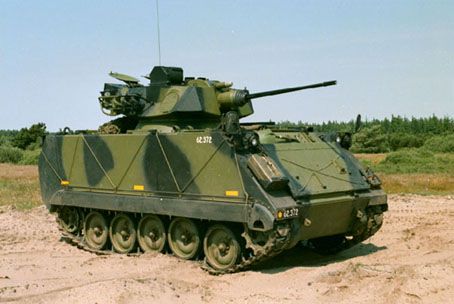The exorbitant price of new cars in Denmark forces many Danes to drive around in old rust buckets. But it seems that this phenomenon isn’t restricted to Civvy Street, as Jyllands-Posten reports that the Danish army’s vehicles and equipment is so old that it could prevent deployment to conflict zones.
READ MORE: Danish Army spent 1.6 million kroner on sports bras in 2014
The newspaper reports that the armoured personnel carriers (APCs) used to transport troops are from the 1960s, the Howitzer artillery cannon is from the same era, and the tanks are from the early 1980s.
Major General Hans-Christian Mathiesen, the army chief, acknowledges the problem and warns that it affects the country’s military preparedness.
“Our APCs are close to being technically outdated and not operationally usable,” he said.
“The Howitzer is so old that it no longer meets the requirements of deployment in a modern battleground. This affects our ability to be deployed.”
Sleeping in class
New equipment is due to be procured in the period from 2018 to 2023. But Peter Viggo Jakobsen, a senior researcher at the Danish military college Forsvarsakademiet, points the finger at the army itself for the situation not having been dealt with sooner.
“Someone’s been sleeping in class, because new equipment hasn’t been procured in time,” he said.
“The Americans offered a bunch of armoured personnel carriers, but these were refused. So you lie in the bed you made.”















